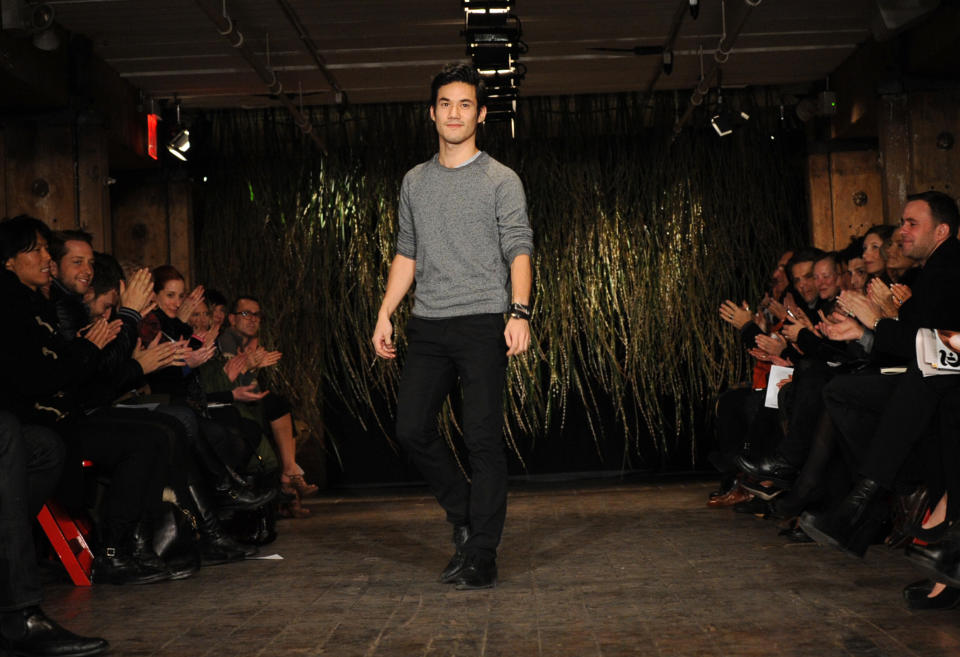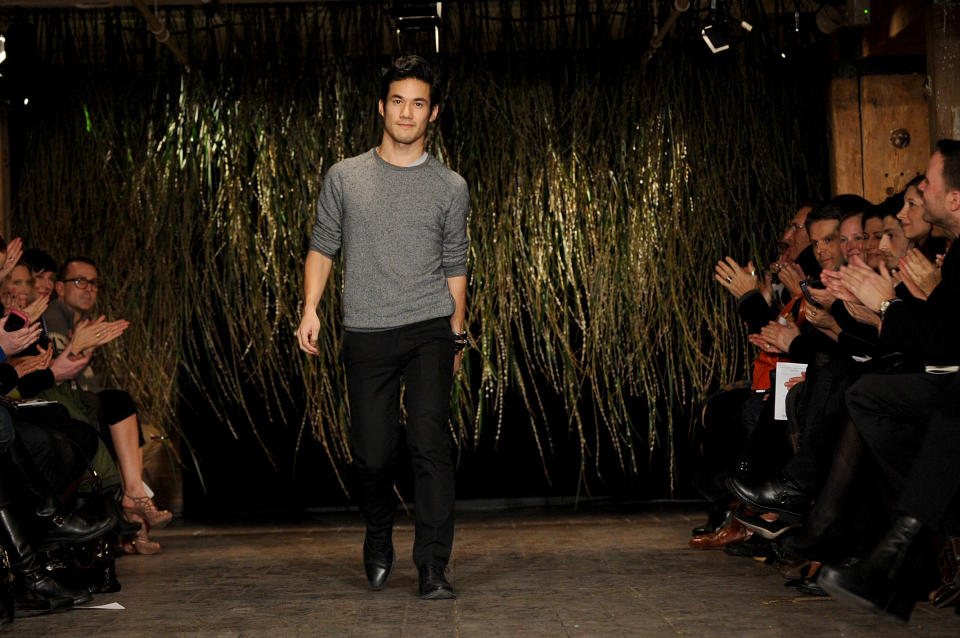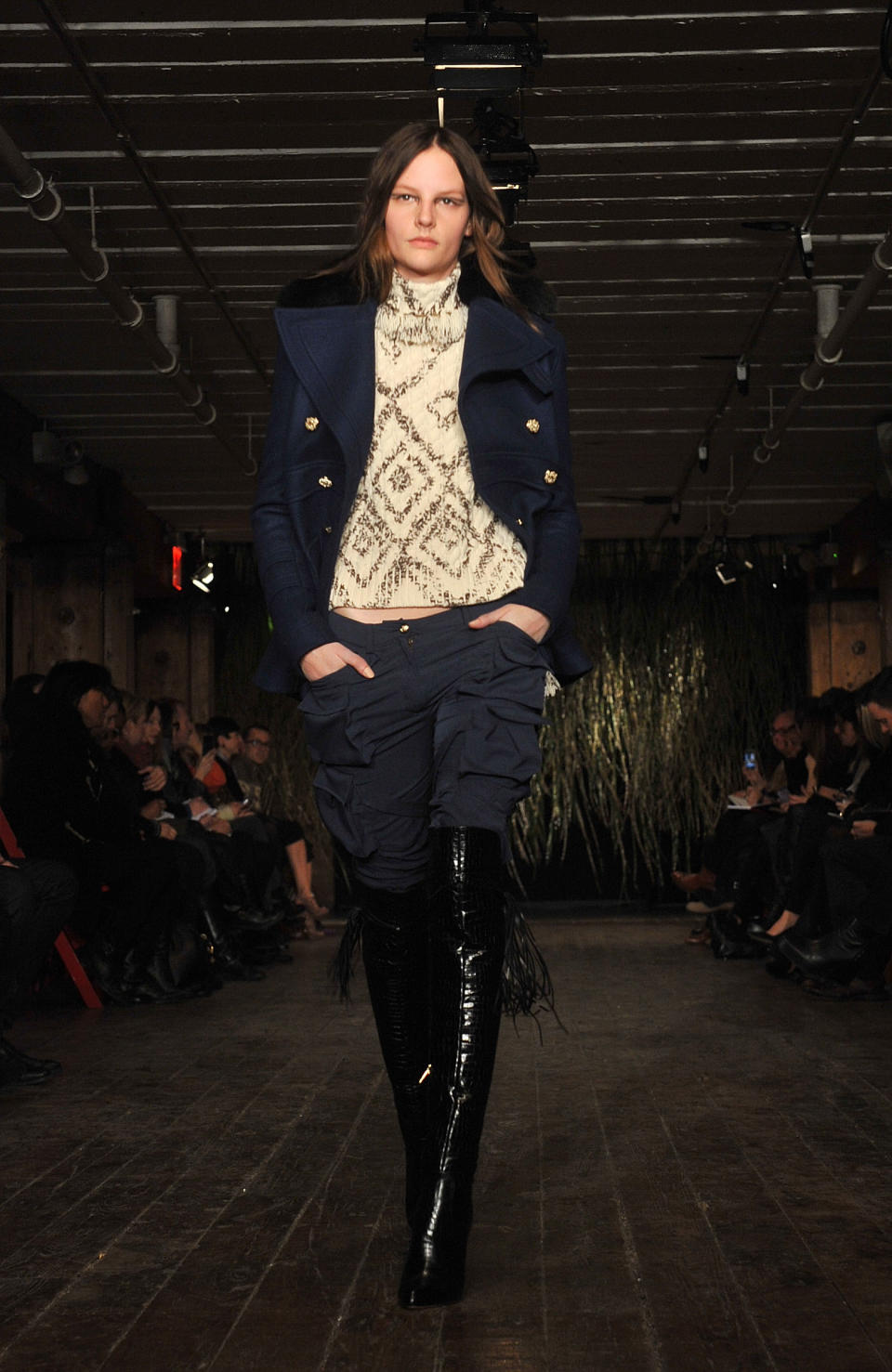Altuzarra sees star rising _ with a few boosts
NEW YORK (AP) — Joseph Altuzarra is riding the juggernaut that often lands him in conversations about the country's most promising and influential fashion designers.
He's not sure how he got to this point — with his own company, title of CFDA/Vogue Fashion Fund winner and status as a must-have fashion show ticket — but he's not asking too many questions: "It all kind of just happened. It took a life of its own," he says. "By the time I decided I was into the idea, it was already happening."
Fashion, he says, has been a part of his life as long as he can remember, since boyhood in Paris. It started through a passion for drawing, which eventually became mostly fashion drawing.
"I don't think there was a single moment when I got into fashion. When you live in Paris, and fashion is such a point of pride for the French, it's always around and you're very much exposed to it from an early age. It was always something I knew about and really liked," he says.
Since coming to the U.S., first to attend Swarthmore College in Pennsylvania and then to New York to intern for Marc Jacobs, the 28-year-old has been on the move. He knows the Jacobs gig was a lucky break, especially since he's not sure he was qualified for it. But he worked hard, he says, and was like a sponge soaking up everything he could and using that to grow his talent. From there, he worked for Proenza Schouler and then Riccardo Tisci at Givenchy.
While there, he realized he was forming his own voice and was ready to say something that could only come from his own womenswear label, which debuted in 2008. He says he felt confident on the creative side, but a little unsure in business. That's where his parents, both investment bankers, came in, and he learned from them. (His mother is still active in the company and is his most trusted adviser.)
The $300,000 CFDA prize he received last year didn't hurt, either. He spent it on production and a new office, but it's the mentorship he received from different forces in the industry that he found most valuable, he says. Sure, he has competitors, but he finds that most people realize that it's better for the fashion industry to have many success stories instead of a handful. "We do band together and support each other."
He adds: "You are the designer, but you have to have strong relationships with the commercial side of the business — sales and press. You don't design in a vacuum. You need to be aware of what's happening in the company and sales. It makes you a better designer, even if it's not what you thought you set out to do."
So, each day is a balancing act between creating unique, beautiful things and hitting the zeitgeist so that women will want to buy them. Each new collection is a full journey.
"It starts with a story or a mood, but usually the place it starts is not the place it ends up. You have to start with your gut, an idea you are willing to commit to for the next six months, and the idea will take a life of its own and develop as you work on fabrics and start drawing," he says. "I try to stay open to change, but I also try not to change my mind constantly."
His newest collection was inspired by the European comic character Corto Maltese, of whom Altuzarra was a fan as a child. There is something very global and multi-ethnic about the sailor character, although he's very cosmopolitan, too, Altuzarra explains, and that's what he was trying to infuse into his clothes.
CFDA deputy director Lisa Smilor has been a fan of Altuzarra since the designer's earliest days, when he was still showing in his apartment.
"I knew that I was in the room with someone special hearing the way Joseph talked about the clothes," she says. "It was clearly evident that he was passionate about his craft but that he also understood the importance of establishing a profitable business. The questions he asked were very smart, and I knew that he had the winning combination: great talent and a good sense of the industry."
Success will continue to come in steps, Altuzarra says, but a bellwether moment came last year when he saw fashion editors trace a blossoming trend in floral prints to his runway show.
The recognition makes him a little nervous, though.
"The fashion industry has a tendency to embrace someone and drop them. You don't want to be the It boy, the flash in the pan, which is why I'm really concerned and try not to be too exposed. I don't go to too many parties or do too much press."
He'd much rather watch people on the street. That's something that makes him a real New Yorker, he says, as does his TV habit and his constant checking of his cellphone. "What's very New York? I'm obnoxiously looking at my phone when people are talking to me or I'm buying something. Also I'm eating on the go a lot. In Paris, what I did that was very French used to be smoking but that's gone — and I'm really happy about that."
The one thing he won't give up: French sweets. "It's a very French thing: I never exercise and I love pastries."





